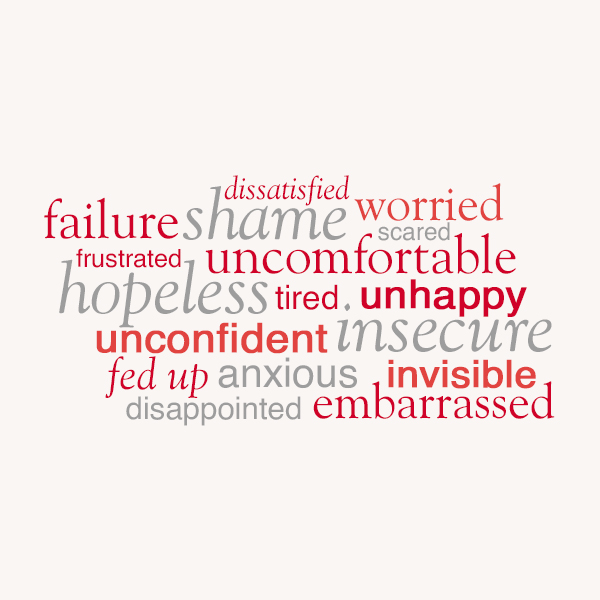Avid blog readers will already know that members of the Slimming World research and nutrition team attended one of the world’s biggest obesity research conferences, the European and International Congress on Obesity (ECOICO) last week. As well as sharing findings from our Health and Wellbeing study with scientists, researchers and healthcare policymakers from across the globe, we were also keen to discover the latest obesity research from leaders in the field.
One study that attracted our interest highlighted the importance of the language used by health professionals when talking about weight. The results suggest that people prefer health professionals to use the words ‘weight’, ‘unhealthy weight’, and ‘overweight’, rather than ‘super obese’, ‘chubby’ or ‘extra large’.
Conducted by the University of Leeds, this online survey of nearly 3,000 UK adults also explored people’s emotional responses to the language used, with the terms ‘super obese’, ‘chubby’ and ‘fat’ most commonly provoking the strongest feelings of disgust, contempt and anger.
This confirmed our own findings from our Mind Your Language study, released earlier this year, where we worked closely with leading psychologist Dr Linda Papadopoulos to better understand the links between self talk, self-esteem and weight loss – and how being part of a supportive group can help transform the way we feel about ourselves. Here are her expert thoughts on the findings:
“This new study, Weight-related terminology: An exploratory study of emotional response and weight bias internalisation, shows the importance of language choice when it comes to weight. The researchers found people had a very emotional response to language used around weight.
Slimming World’s Mind Your Language study showed that, all too often, Slimming World members’ own internal dialogue about weight can have an impact on self-esteem. It found that 74% of people who struggle with their weight have used self-critical language when referring to their size and body image. While often the reason we self-deprecate is to motivate ourselves to change, far from helping with motivation, our study showed that self-deprecation can be made worse by external negativity and ‘fat shaming’ and can lead to a vicious cycle of self-criticism that is difficult to break.
Being part of a supportive, like-minded social group can help you to tackle that internal bully. It can build confidence and self-esteem, making positive behaviour changes easier to implement and maintain. Learning to be kinder to yourself is key, as it makes it possible to shift negative self-talk and motivate positive change.”
We were heartened to see that 91% of those who we surveyed said that being a Slimming World member made them feel more positive about themselves. This really does reinforce the unique power of a Slimming World group – a supportive, welcoming community that understands how it feels to struggle with your weight, and the challenges of being on that weight loss journey. You can read more about our Mind Your Language report, with more from Dr Linda, here.
Keeping up to date with all of the latest obesity-related research and developments in effective weight management ensures that we can offer the very best service to our members. The Slimming World plan is firmly evidence-based – which is why it works!
Our best-ever offer for new and existing members:
If you’re excited to return to your real-life Slimming World group – or you’re thinking about joining as a brand-new member – now is a great time to commit to your weight loss goals.
We’re giving both new and existing members a FREE recipe book and a FREE week with our best-ever Countdown offer. Simply commit to a six-week Countdown before 10th October 2020. Your local Consultant is at the end of the phone to answer any questions and book you on a session.
We’re also offering £20-off membership packages for our digital-only service, Slimming World Online. Find out more here.
Weight-related terminology: An exploratory study of emotional response and weight bias internalisation was presented at the European and International Congress on Obesity (ECOICO) between 1-4th September 2020.
If you’d like to read more about the ECOICO presentation Impact of Covid-19 on health-related behaviours, wellbeing and the ability to manage weight, you can see the full press release and the poster presentation here.

